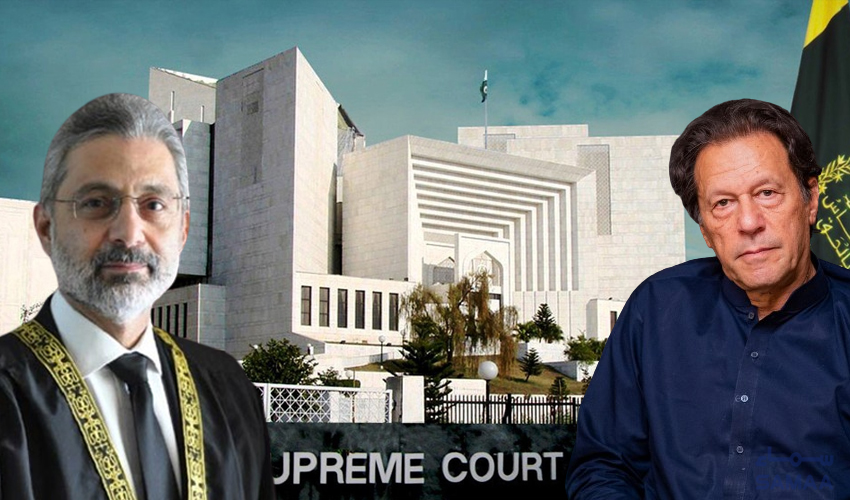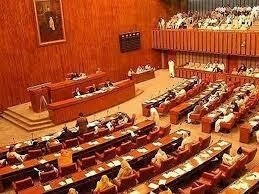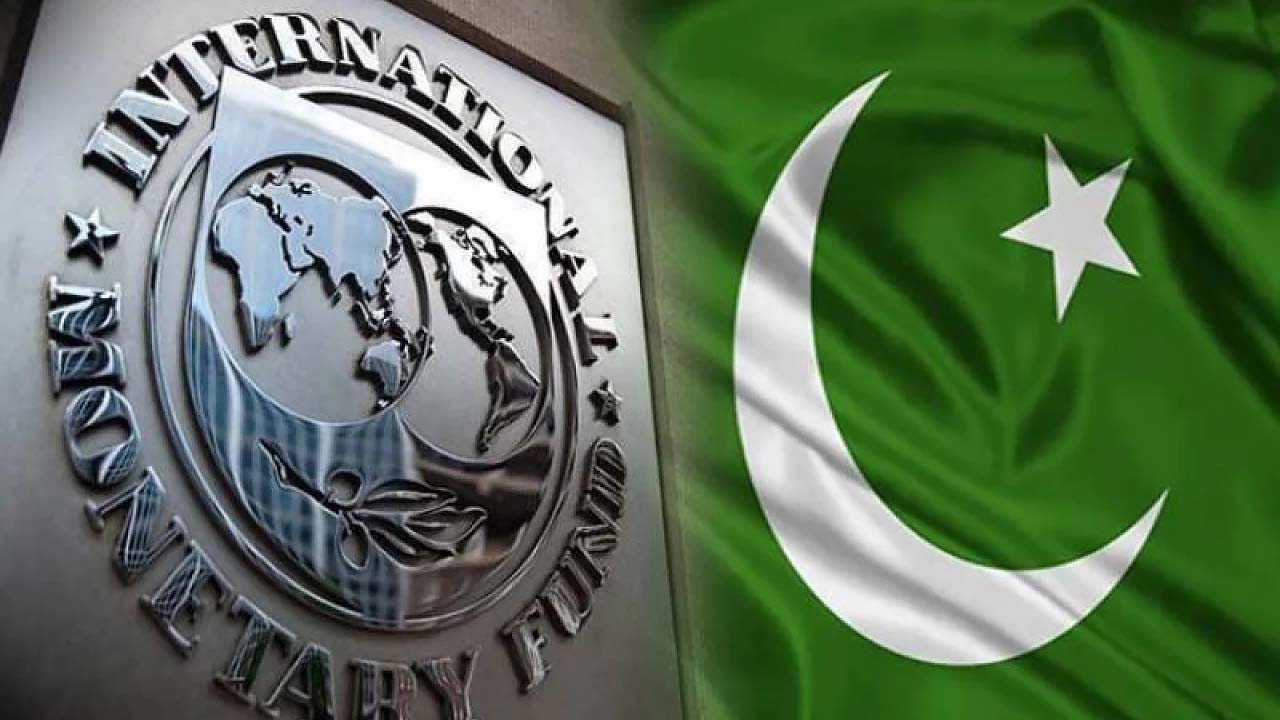PTBP Web Desk
The founder of Pakistan Tehreek-e-Insaf (PTI), Imran Khan, witnessed his legal representative, Barrister Ali Zafar, initiate a boycott of the Supreme Court’s review hearing. The case, pivotal in its implications, challenges the interpretation of Article 63-A of the constitution, which addresses the consequences faced by parliamentarians defecting from their parties.
The hearing was set before a freshly constituted five-member bench led by the Chief Justice of Pakistan, Qazi Faez Isa. The other esteemed members of the bench included Justice Ameenuddin, Justice Jamal Mandokhel, Justice Mazhar Alam Miankhail, and Justice Naeem Afghan. This reconfiguration followed after Justice Munib Akhtar recused himself from the proceedings, hinting at the complexities and sensitivities involved in the case.
As proceedings kicked off, Chief Justice Isa approached Barrister Ali Zafar, proposing his appointment as an amicus curiae—a friend of the court—to facilitate the hearing. Zafar’s response was cautiously respectful yet firm. He acknowledged the court’s authority but expressed reservations about the bench’s composition, stating, “I have no objections to the court’s order, but the composition of this bench is not correct.” His stance reflected a deeper contention, hinting at perceived biases that could influence the judicial outcome.
The courtroom atmosphere tensed as Zafar communicated a direct instruction from PTI’s leader, Imran Khan, advising him against proceeding with the case under the current bench. Chief Justice Isa, reminding Zafar of his responsibilities as a senior lawyer and a former bar president, highlighted the necessity for decorum and respect within the court’s proceedings.
The dialogue between Zafar and Chief Justice Isa escalated, with Zafar insisting on Imran Khan’s right to address the court directly. The discussion veered towards the implications of the Supreme Court’s potential verdict, which Zafar argued could inadvertently enable horse trading, thus undermining the integrity of parliamentary processes. The Chief Justice, cautioning Zafar against contempt, underscored the importance of maintaining mutual respect in judicial proceedings.
This legal battle stems from a broader discourse on Article 63-A of the constitution, which has become a focal point of political and judicial scrutiny. According to the contested interpretation by the Supreme Court on May 17, votes cast by defecting members of Parliament would not be counted, a decision aimed at preserving party loyalty and political integrity. This ruling, delivered by a split 3-2 majority, was spearheaded by the then Chief Justice Umar Ata Bandial, emphasizing the detrimental impact of shifting allegiances within the Parliament on the democratic fabric.
The constitutional backdrop of Article 63-A specifies stringent measures against parliamentarians who defy party mandates in crucial legislative decisions, including the election of prime ministers, votes of confidence, and fiscal legislations. Under this article, party chiefs can initiate proceedings to declare a lawmaker as having defected, leading to potential disqualification and vacating of parliamentary seats.
The controversy deepened with the Supreme Court Bar’s petition to revisit this interpretation, arguing that excluding the votes of dissenting members contradicted the constitutional ethos. They posited that such judicial interpretations amounted to undue interference in legislative affairs, a perspective that resonates with the arguments presented by Barrister Zafar.
Amidst these proceedings, a heated altercation involving a PTI representative, Mustafin Kazmi, further highlighted the charged atmosphere. The Chief Justice’s order to expel Kazmi from the courtroom underscored the high stakes and emotional investment associated with this case.
As Pakistan navigates these judicial and political currents, the outcomes of this Supreme Court hearing could significantly reshape its legislative landscape. The review petition not only challenges the judiciary’s role in interpreting constitutional mandates but also tests the resilience of its democratic structures against political maneuvering.
This case serves as a crucial litmus test for Pakistan’s judicial independence and the robustness of its democratic institutions. As the nation watches closely, the decisions made in this courtroom could redefine the boundaries between judiciary and legislature, influencing Pakistan’s political trajectory for years to come.




